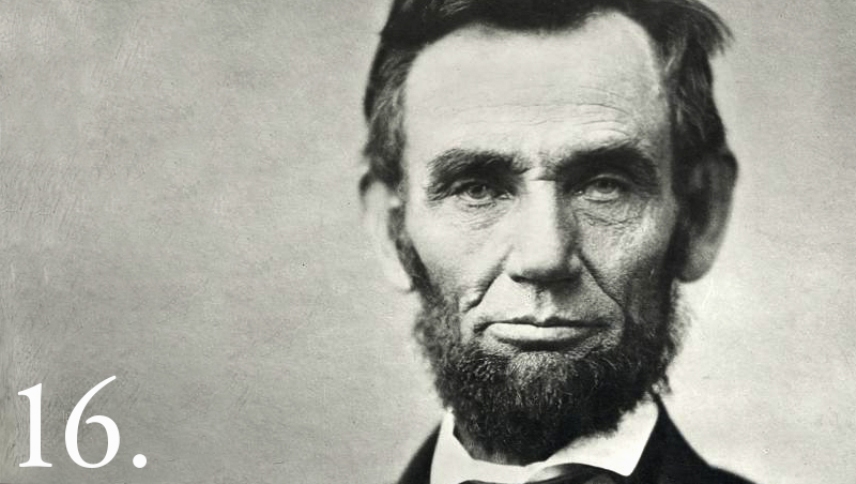Okay, I missed Lincoln’s birthday on Friday, but this is good.

In light of the fiery attacks GOP candidates have thrown at each other, it’s interesting to consider a question presented by FlackCheck.org, the political literacy site:
Could Lincoln be elected today if his opponents used today’s political tactics?
The concept was developed into a 2012 social studies lesson plan by Kathleen Hall Jamieson in an effort to teach critical thinking to students.
“The Annenberg Public Policy Center at the University of Pennsylvania… [produced] web pages… [and] videos specifically created to help classes recognize flaws in arguments in general and political ads in particular, and to examine the criteria for evaluating candidates, past and present, for the presidency.”
“With Northern victories in the Civil War proving elusive, on August 23, 1864,” the premise begins, “President Abraham Lincoln penned a memorandum that he asked his cabinet to endorse sight unseen:
“ ‘[I]t seems exceedingly probable that this Administration will not be reelected. Then it will be my duty to so co-operate with the President elect [General George McClellan], as to save the Union between the election and the inauguration; as he will have secured his election on such ground that he cannot possibly save it afterwards.’
“Two years earlier Lincoln had removed the man who was now his opponent from command of the Army of the Potomac. McClellan was an indecisive general who saw himself as America’s Napoleon. A majority of those who served under him in the army voted against him in 1864.”
In one ad, “Honestly, Abe,” the McClellan campaign spins Lincoln’s Gettysburg Address completely out of context:
“At Gettysburg,” the narrator intones, “Lincoln said that our nation would ‘perish from the earth,’…he said that our soldiers had ‘died in vain,’ … The message closes with the tagline, “Lincoln: Wrong on the War, Wrong for the Union.”
“I am George B. McClellan, and I approved this message.”
“When common sense tells you a leader is unlikely to have said what you heard him or her say in an ad,” FlackCheck writes, “investigate the possibility that the words are out of context. Now turn to the ‘Patterns of Deception’ page on FlackCheck.org to see instances in which the words of Governor Mitt Romney and President Barack Obama have been taken out of context in [the 2012] presidential contest.”
Among the testy ads in the Lincoln series, a group calling itself “Steamboat Veterans for Truth,” attack McClellan using statements from his own troops:
“I served with George McClellan.” “George McClellan cannot be trusted.” “He’s lying about his record.” “I’m not saying George McClellan is a coward, but… I am thinking it.”
Pretty damning stuff.
The point of the exercise is to educate students about “deceptive framing, applying a double standard, making a glass house attack; and such means of visual manipulation as visual vilification, seeing what’s not heard, and deceptive dramatization.”
In “Leading from the Rear,” Lincoln approves a message using McClellan’s own words against him:
“The duties of my position are such as often to make it necessary for me to remain in the rear – an awful thing.”
Students view more ads to determine, “What Constitutes a Legitimate and Fair Attack?’
“Mortgaging our Future to Pay for His War,” for example, castigates Lincoln for printing money “to pay for his war.”
McClellan even stoops to label Mary Todd Lincoln a Dixie supporter!
Have you no sense of decency, sir!
The lesson plan, along with fact-spinning ads that mimic past elections, gives students the opportunity to critically look at issues and candidates to not only separate political spin from truth, but to examine what they themselves, believe in. (Click on the link to see all the entire series.)
How would Lincoln hold up in today’s GOP debates?
I can hear the Donald, now:
“[I call for a] total and complete shutdown of [Southerners] until our country’s representatives can figure out what is going on!”
“I’m the only one on this stage that said, ‘Do not go into [the South]. Do not attack [the South],’ Nobody else on this stage said that. And I said it LOUD and STRONG. … ‘You’ll destabilize the [United States]!’ ”
“Impeaching [Lincoln] would be a good thing,”
I’m hoping today’s students utilize Jamieson’s lesson plan.
I’m hoping that today’s voters practice some critical thinking!
Comments










